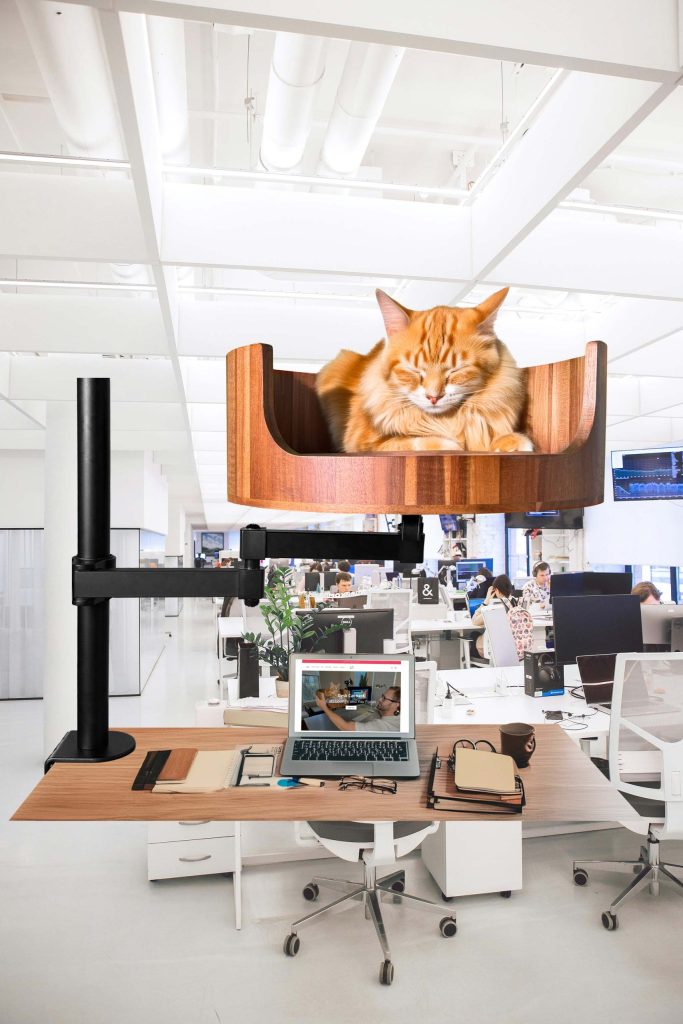Have you ever caught your cat chewing on plastic bags or wrapping materials? This peculiar behavior is not uncommon among feline companions and can be both puzzling and concerning for pet owners. In this article, we delve into the reasons behind cats chewing on plastic and explore ways to address this behavior effectively.
At Desk Cat Nest, we are dedicated to understanding the unique behaviors of our beloved feline friends, and chewing on plastic is a topic that frequently comes up among cat owners. From exploring the potential reasons behind this behavior to providing practical solutions to keep your cat safe and healthy, we aim to offer valuable insights and guidance to help you better understand and manage this common issue. Stay tuned as we uncover the fascinating world of cats chewing on plastic and empower you with the knowledge to create a safe and enriching environment for your furry companion.
1. Cats chewing on plastic can be a common behavior, but it is important to understand the reasons behind it.
2. Stress, boredom, or inappropriate dental care can lead cats to chew on plastic objects.
3. Providing appropriate chewing alternatives, such as toys or treats, can help redirect this behavior.
4. Regular dental check-ups and proper enrichment activities can prevent cats from chewing on plastic items.
5. Understanding the underlying causes of this behavior will help in creating a safe and fulfilling environment for our feline friends.
## What Causes Cats to Chew on Plastic?
Cats chewing on plastic is a common behavior that can be caused by various factors. One possible reason is that some plastics contain phthalates, a type of chemical that mimics hormones in the body. Cats might chew on plastic to get a taste of these chemicals, which can be attractive to them. Another reason cats chew on plastic is due to pica, a condition characterized by an urge to eat non-food items. Cats with pica may chew on or even ingest plastic due to anxiety, boredom, or dietary deficiencies.
## Potential Risks of Cats Chewing on Plastic
While cats may find chewing on plastic satisfying, it can pose several risks to their health. One major concern is the risk of ingesting plastic, which can lead to digestive issues like intestinal blockages or obstructions. This can result in symptoms such as vomiting, diarrhea, or even a life-threatening emergency requiring surgery. In addition, some plastics contain toxic chemicals that can be harmful if ingested by cats. This can result in poisoning and serious health consequences.
## How to Address Cats’ Chewing Behavior
If your cat is chewing on plastic, it’s important to address the behavior to prevent any potential health risks. One way to discourage this behavior is by providing alternative, safe chewing options for your cat, such as catnip-infused toys or dental chews. You can also try to eliminate access to plastic items by storing them in secure containers or using pet-safe deterrent sprays on plastic surfaces. Additionally, addressing any underlying issues such as anxiety or boredom through interactive playtime, environmental enrichment, or behavioral training can help curb your cat’s desire to chew on plastic. If the behavior persists or becomes concerning, consulting with a veterinarian or animal behaviorist for further guidance is recommended.
## FAQ
### Can the Desk Cat Nest prevent my cat from chewing on plastic?
The Desk Cat Nest can help deter your cat from chewing on plastic by providing them with a cozy and comfortable alternative to satisfy their natural instincts.
### How do I know if the Desk Cat Nest will be the right solution for my cat’s plastic chewing behavior?
Every cat is different, but many cat owners have found success in redirecting their cat’s chewing behavior towards the Desk Cat Nest. Monitoring your cat’s behavior and providing them with appropriate toys and scratching posts can also help.
### Is the Desk Cat Nest safe for my cat to use?
Yes, the Desk Cat Nest is made with non-toxic materials and is designed with your cat’s safety in mind. It provides a secure and enclosed space for your cat to relax and play in.
### How durable is the Desk Cat Nest?
The Desk Cat Nest is made with high-quality materials that are built to last. While it may show signs of wear over time due to your cat’s natural behavior, it is designed to withstand regular use.
### How can I encourage my cat to use the Desk Cat Nest instead of chewing on plastic?
You can entice your cat to use the Desk Cat Nest by placing their favorite toys inside, sprinkling some catnip, or gently guiding them towards it whenever they exhibit chewing behavior. Positive reinforcement and patience are key in helping your cat make the switch.
In conclusion, the Desk Cat Bed is a valuable solution for cats who have a tendency to chew on plastic. Not only does the bed provide a comfortable and secure place for your feline friend to rest, but it also helps redirect their chewing behavior towards a safe and appropriate outlet. With its durable and chew-resistant materials, the Desk Cat Bed offers peace of mind for pet owners concerned about their cat’s safety. Invest in the Desk Cat Bed today and say goodbye to worries about your cat chewing on harmful plastic materials.


